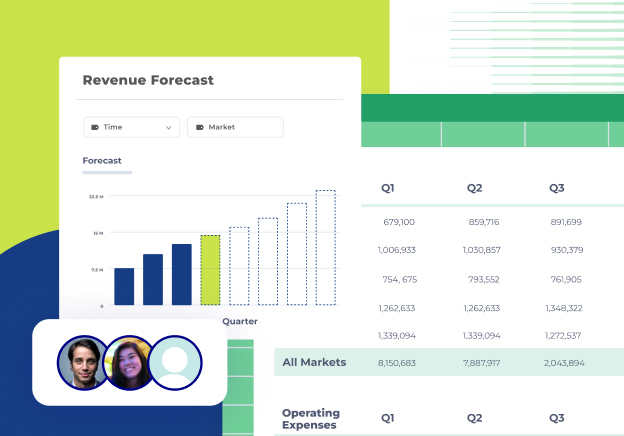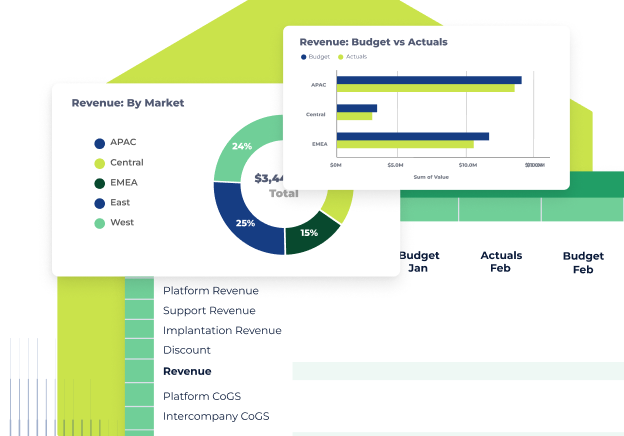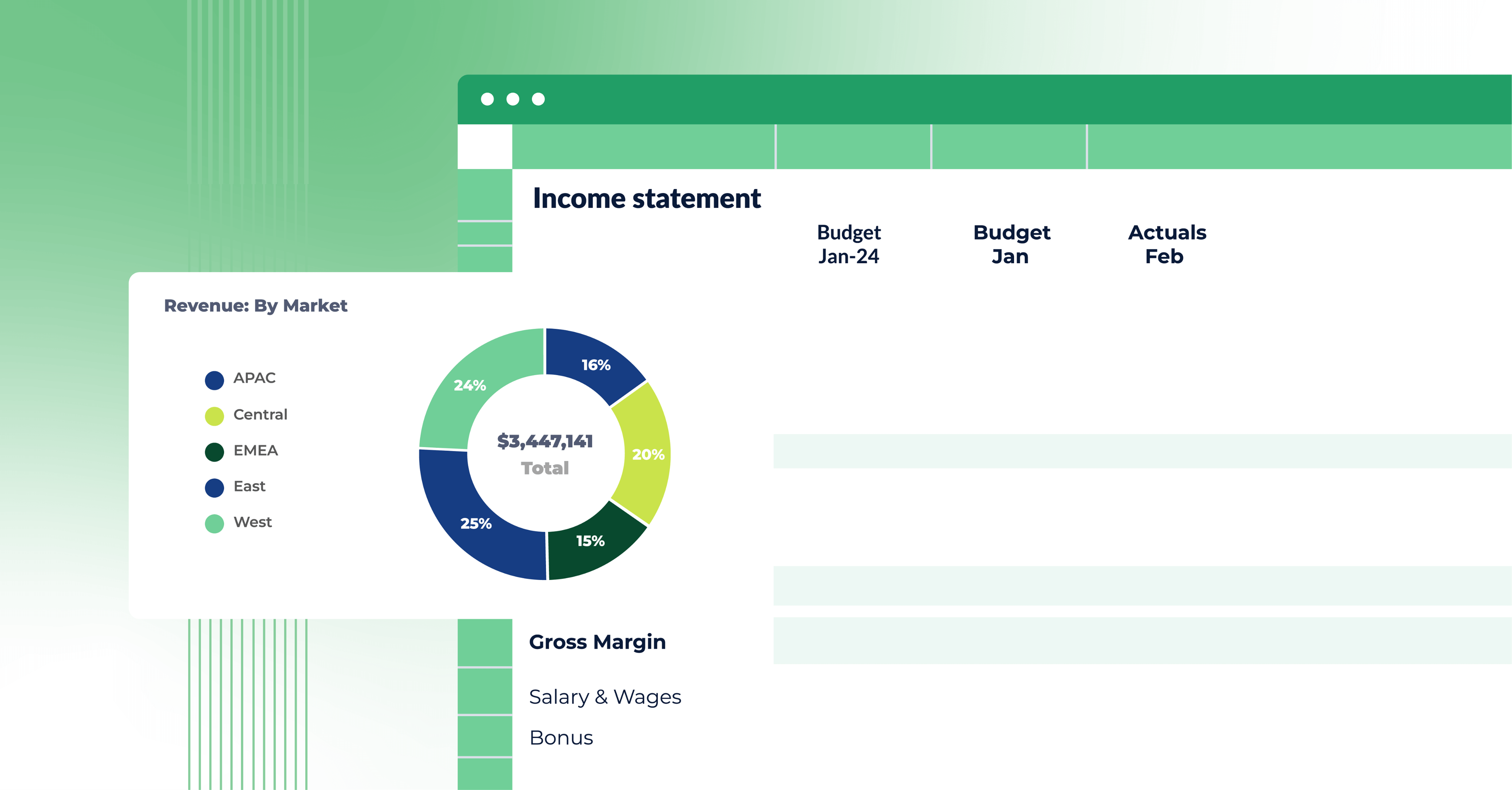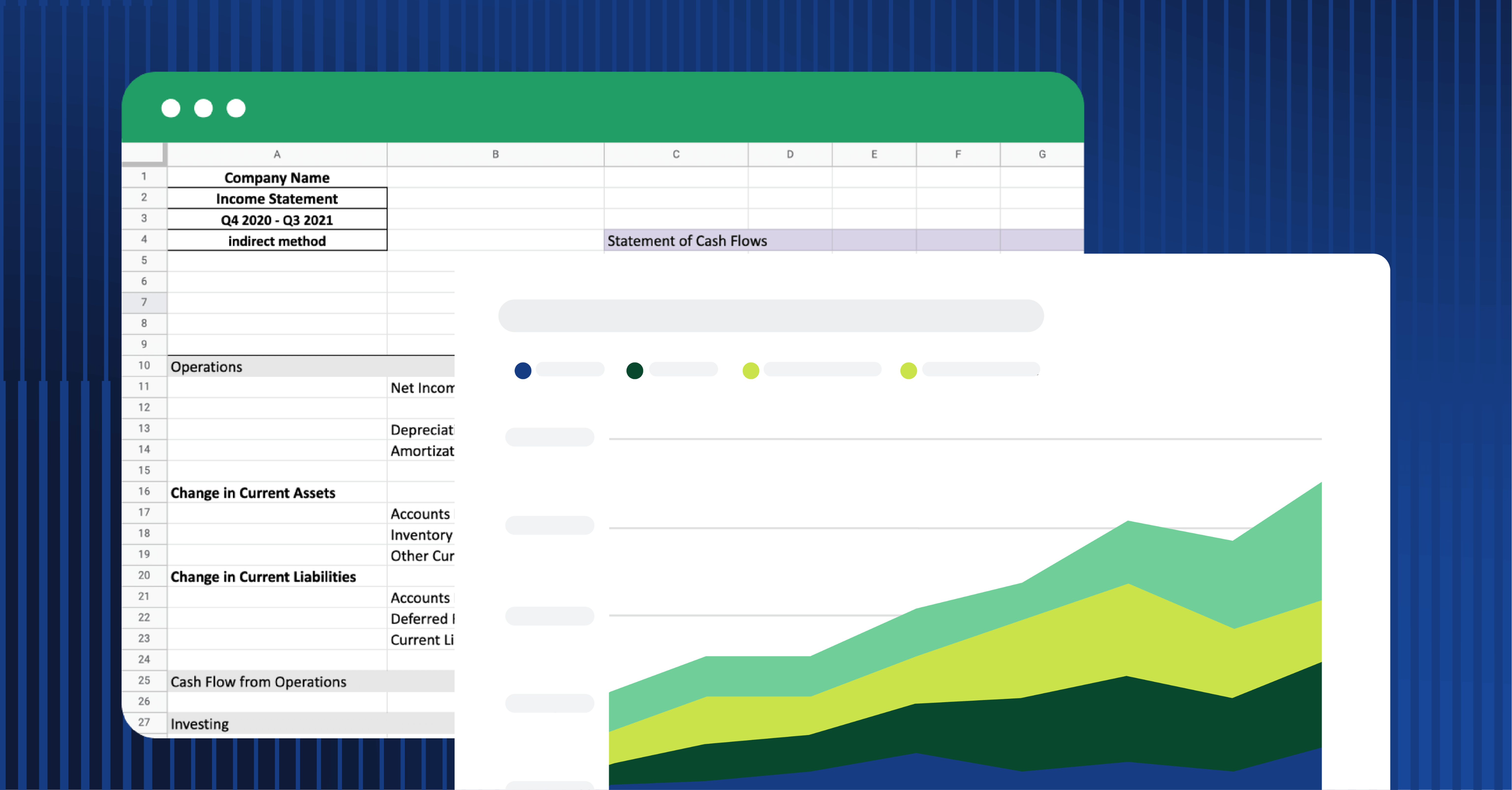Product
Solutions
Resources
Company

About Cube
Explore our vision and team

Careers
Help shape the future of FP&A

In the News
Cube featured in top publications

Security
Enterprise-grade, cloud security
Newsletter
.png)
A newsletter for finance pros—by finance pros. Get practical, strategic finance insights from those who’ve been there—straight to your inbox.
Blog Home / Professional Development
Professional Development
Looking to grow your FP&A and strategic finance career? Get resources on certifications, publications, and career paths you should know.
Featured articles
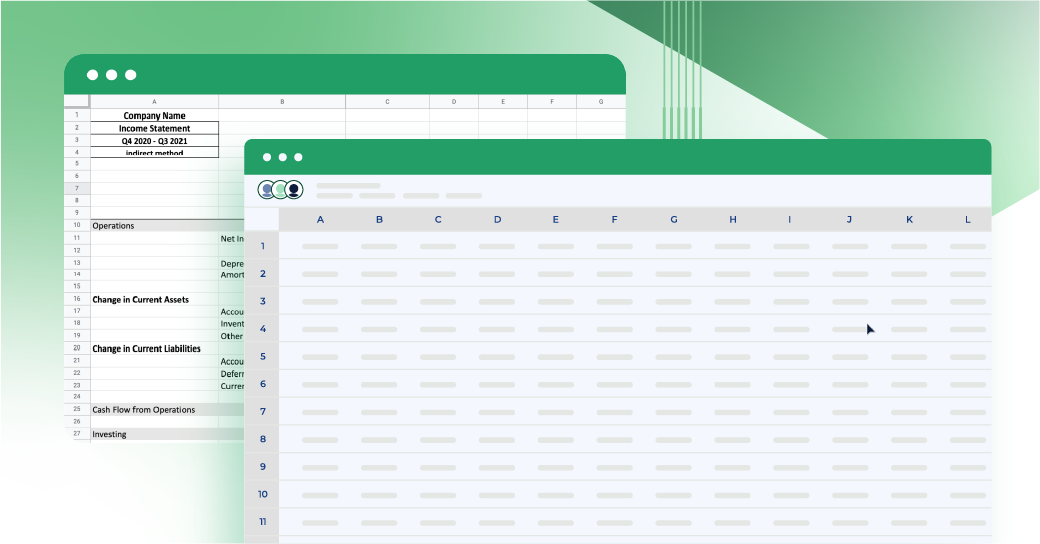
In a new finance leadership role? Here’s a guide for a successful first 90 days
How should you prepare for a new role in finance leadership? Use this guide to set your team up for success from day 1.
Read more

Our FP&A salary & career field guide for 2026 strategic finance roles
Explore FP&A salaries, career paths, promotion tips, and compensation trends. Learn how to advance your strategic finance career and increase earnings in 2026.
Read more

What's an FP&A job? (Plus helpful FP&A job descriptions)
Learn what FP&A professionals do, typical responsibilities, required skills, and career paths. Includes a detailed FP&A analyst job description for 2026.
Read more
Search
Rolling forecasts: Definition, how to make one, and when to use them
PSA: Not all metrics are KPIs - best practices
What is financial planning and analysis (FP&A) software?
Cash forecasting: a quick guide for busy FP&A teams (updated for 2026)
Getting buy-in for your next finance transformation project
Scenario planning: strategies, techniques, & examples [2026]
Track and control revenue churn to keep your best customers
LTV/CAC ratio: your secret weapon to measure sales & marketing ROI
Revenue retention (GRR vs. NRR): calculate, interpret, and improve
Strategic budgeting: Are you getting it right? A guide for 2026
Top-down vs. bottom-up budgeting: Which should you use? [2026]
Best financial forecasting software solutions [2026 review]
Rule of 40 and SaaS: What is it and why is it so important?
Cohort analysis: the secret to the best insights you've ever gotten
CAC (customer acquisition cost): how to measure sales/marketing ROI
The definitive guide to an FP&A software implementation (in 2026)
Full steam ahead? Calculating the SaaS magic number
G2 ranks Cube high performer, easiest to do business with (Spring '22)
Chart of accounts: How it works and best practices
The best corporate finance software for financial management
Budget vs. forecast vs. plan: What’s the difference? [2026]
What is customer lifetime value (LTV)? Definition, uses, examples
In a new finance leadership role? Here’s a guide for a successful first 90 days
How to accelerate your annual budgeting process (in 2026)
22 best business budgeting software solutions
Feel the burn: a guide to gross burn vs. net burn
17 best cash flow management software tools [2026]
Quick ratio vs. current ratio: the quick difference
Why I joined Cube: A product person’s perspective
What is FP&A (financial planning & analysis)? 2026 Guide
Workday Adaptive Planning: Complete review & top alternatives [2026]
16 best FP&A software tools: 2026 comparison | Cube
The complete FP&A software evaluation checklist (for 2026)
How to empower non-financial executives to understand the numbers
Becoming a “have” in B2B SaaS starts with FP&A
The 5 best mid-market planning tools for business [updated for 2026]
Spreadsheet-Native: The Clear Approach to FP&A
Pitching VCs? Here's the deck we used to raise $30M with Battery Ventures
Cash flow: What's the difference between the direct vs. indirect method?
What is budget forecasting?
Month-end close process: Steps, checklist, and how to automate
14 best budgeting software tools & apps [updated for 2024]
Best financial reporting software for 2026: Top 31 review
Best financial planning software in 2026: Top Picks for Businesses
Best finance software solutions for 2026 to streamline your business
Datarails reviews 2026: Pricing, features, and alternatives
Anaplan vs. Adaptive vs. Planful vs. Vena vs. Datarails vs. Cube
Best financial statement software for balance sheets, reporting, and more
Corporate performance management: A primer for 2026
14 of the best financial close software tools [2026 review]
G2 recognizes Cube’s customer service, high performance, and ease of use (Summer ‘22)
Netsuite review: Pros, cons, ratings, & alternatives
Net dollar retention: why NDR is your new north star
Strategic workforce planning for CFOs: from strategy to execution
23 best corporate performance management software solutions [2026]
What's an FP&A job? (Plus helpful FP&A job descriptions)
Best financial modeling software [2026 review]
Driver-based planning: let the numbers lead the way
Anaplan review: Features, pros, cons, & alternatives [2026]
Our review of Jirav: how does the business planning tool measure up?
Slides: The top 5 mistakes CFOs make when communicating with the board
16+ best Anaplan competitors & alternatives for FP&A teams [in 2026]
What-if analysis: a beginner's guide to scenarios + goal seek in Excel
20+ best budgeting and forecasting software solutions [2026 review]
Why is sensitivity analysis important in strategic finance?
What is strategic financial planning and management?
Cube ranks #1 for ease of use on G2; receives 20 badges across FP&A categories (Fall '22)
NetSuite vs. QuickBooks: how do they measure up?
Cash inflow and outflow: keeping tabs on your financial health
Cash runway: How (and why) to calculate your company’s cash runway
32 FP&A interview questions to land your dream FP&A job
What are the three financial statements?
Capacity planning: the CFO's guide
Pro forma template: Free Excel budget templates
What is headcount forecasting? [Free template]
Planful review: Pros, cons, and alternative financial software
EBITDA: What does it say about my company's financial health?
100+ FP&A statistics & trends for finance teams to know
16+ of the best NetSuite integrations: Your 2026 guide
Cube ranks #1 for user satisfaction on G2; Receives 30+ badges across FP&A categories (Winter ‘23)
The 11+ best Oracle Essbase alternatives [updated for 2026]
22 ERP systems and software examples
Best Account Reconciliation Software Solutions for 2026
Best strategic planning software for CFOs [2026 review]
Learn FP&A: The 15 Best FP&A Certifications and Courses [2026]
15 best Mosaic Tech competitors and alternatives [2026]
Burn multiple: a quick & simple guide
Every (50+) financial ratio you'll ever need in 2026
11+ Best workforce management software for CFOs [2026]
Our FP&A salary & career field guide for 2026 strategic finance roles
ASC 606 revenue recognition: A 2026 guide for SaaS CFOs & FP&A teams
The best capacity planning tools for busy FP&A teams in 2026
Best sales forecasting software in 2026: Top Picks for Business
What is a balance sheet projection? (And top balance sheet software)
What's a static budget? Here's what you need to know
Strategic Finance: An exhaustive and practical guide for CFOs in 2026
Prophix Software: Reviews, alternatives & pricing [2026]
Variance reporting: What is it + how to read/write a variance report
Account reconciliation: What it is, how it works, and what to do
Best report automation tools & how to guide
13+ best financial analysis software for FP&A teams [2026]
The 11+ best Centage alternatives (updated for 2026)
Top Pigment competitors & alternatives [2026 reviews]
The 9+ best OnPlan alternatives and competitors [for 2026]
The 11+ best OneStream alternatives and competitors in 2026
Calculating DPO vs. DSO (including Days Payable Outstanding formula)
Contribution margin income statement examples & guide [2026]
IRR vs. XIRR: What's the difference? When do I use them?
MRR vs. ARR: recurring revenue in SaaS is still important
xP&A: How to conduct extended planning and analysis
Keep your company in tune: reconcile your balance sheet the right way
Board reporting guide: Mistakes to avoid & free templates
Create and track a cash budget (step-by-step guide)
How to calculate EBIT (Earnings Before Interest and Taxes)
Adjusted EBITDA: Definition, formula, and how to calculate it
NBV (Net Book Value): Definition, formula, and how to calculate
Net income vs EBITDA: Key differences to know
Goodwill impairment: the value of a name
What are intercompany transactions?
How Veryable unwound a complex spreedsheet stack
How Growth Operators uses Cube's flexibility to scale
How Figment improved forecast accuracy and found immediate value
Why I Built Cube: The Home of Strategic FP&A
Profitability analysis: slicing the pie
Incremental budgeting: is it the right budgeting method for you?
Activity-based budgeting: is this budgeting method right for you?
Top-down vs bottom-up planning [2026]
Statement of retained earnings: reporting on your rainy day fund
Operational planning vs strategic planning: How they work together
Net working capital: the basics, how to calculate, and how to improve
CapEx vs. OpEx: What's the difference?
CapEx formula: how to calculate capital expenditures
G2 ranks Cube #1 for ease of use, price, and user satisfaction (Spring ‘23)
10 types of financial forecasting models
Sales and operations planning (S&OP): the basics and best practices
26 of the best workforce planning software tools [2026]
Organizational plans: a quick primer (with examples)
Zero-based budgeting: justifying every line item in the company budget
Cash flow forecasting: The financial GPS system
Your guide to financial forecasting essentials (for 2026)
Essential parts of a strategic plan
Our top budgeting best practices for busy FP&A teams
Reporting unearned revenue: what you need to know
How to create & use pro forma statements
The 10 best ad hoc reporting software for busy FP&A teams (in 2026)
What is the percentage-of-sales method?
Budget variance analysis: did you stick to your budget?
What's a P&L budget?
Ad hoc reporting: create custom ad hoc reports for business needs
The 4 financial statements CFOs need to know [2026]
Compliance reporting: everything you need to know
Designing & presenting effective financial reporting dashboards
Hiring your first FP&A analyst
The best strategic finance publications in 2026
Everything an FP&A leader should have on their finance dashboard
How to prepare financial statements: a quick guide for FP&A teams
Building a foolproof operating budget
Navigating multi-currency account reporting: a guide for FP&A managers
Comparing different capital budgeting techniques
The benefits of automated compliance management systems in FP&A
The CFO's guide to impactful board decks (slides included!)
G2 ranks Cube “Most Implementable” and a “Leader” in multiple FP&A categories (Summer ’23)
How to calculate projected sales: a guide for FP&A leaders
How to use automated variance analysis to enhance forecasting accuracy
Creating a master budget: best practices for better collaboration
From number-cruncher to strategic leader: the changing face of the CFO
How to build an effective FP&A process
What is data integrity? How to achieve accuracy in FP&A reporting
9 variable expenses examples you should know
Compliance management: Build a culture of compliance on your FP&A team
How InStride streamlines financial processes and drives strategic planning with Cube
Mid-year financial performance review: assessing financial health and course correction
Keep calm and plan on: How to build a stress-free budget process
Budget preparation: when should you start planning your budget?
Breaking down the budgeting process: 7 things you need to get your budget approved
NetSuite and Cube: how integrating your ERP and FP&A systems unlocks productivity
The makings of an effective financial planning calendar
Maintaining strategic alignment: Budgeting tips for finance leaders
10 KPIs finance leaders need to track for organizational health
Planning your budget: top 5 questions to ask budget owners to ensure accuracy
Budgeting and forecasting: a quick and easy guide
How Smart City Apartment found confidence in their numbers and scaled with Cube
G2 awards Cube 32 badges and top spot for "CPM" and "Budgeting and Forecasting" (Fall ‘23)
How to use FP&A software to drive strategic planning
4 proven tactics to survive budget season for finance leaders (video included!)
6 biggest headaches for FP&A teams (and how to fix them)
Risk management in financial planning: mitigating uncertainties for a stronger future
FP&A team structure, responsibilities, and how to scale [2026]
Driving profitability: leveraging break-even analysis in FP&A strategies
How can FP&A software save you time and help you scale?
What type of FP&A integrations should finance teams use?
Datarails: Competitors, alternatives, reviews & pricing [2026]
Vena FP&A quick-start guide: How does it work?
How does flexible budgeting enhance financial planning?
Everything a finance leader needs for a top-tier tech stack
Pipeline planning, simplified: a complete guide to S&OP software
Transform your finance team into strategic business partners with Cube's Finance Acceleration Framework™️
Why Cube is invested in the future of FP&A
Best strategic planning software: Top Tools for SMBs in 2026
Jedox software reviews and packages: what to know before you buy
[]
The Finance Fix
Need your finance & FP&A fix? Sign up for our bi-weekly newsletter from former serial CFO turned CEO of Cube, Christina Ross.
FAQS
Still have questions?
What's a typical career path for FP&A professionals?
How do I get into FP&A without experience?
What are the best interview questions for FP&A positions?
Here are a few questions that will help see how an interviewee thinks through FP&A processes:
Please walk me through the three financial statements and how they flow together.
Explain financial modeling and the most common financial modeling methods.
Please walk me through the process of creating a journal entry.
What experience do you have in developing budgets and financial forecasts?
Tell me about some financial tools you've used in past roles.
How do you determine if the company is cash-flow positive?
Where should you look first to determine the financial health of the company?
What should a CFO or finance leader do in their first 90 days?
Meet our community
Together, we're not just solving today's problems, we’re building tomorrow’s finance function: smarter, faster, and more collaborative.

.png)


